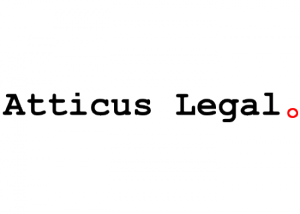A FAMILY TRUST. WHAT IS IT & HOW CAN IT HELP? BY ATTICUS LEGAL The best little law firm in Hamilton!
A family trust can form an important part of estate planning. The aim of estate planning is to achieve an intended distribution of assets amongst those for whom you wish to provide, whether during your lifetime or after you die.
This article focuses on family trusts. But family trusts are not the only estate planning tool. For more on other estate planning tools see the Atticus Legal article ‘Estate Planning. What are the options?’ on our website at https://atticuslegal.co.nz/estate-planning/
What is a family trust and how is it formed?
A trust is a method of separating the legal ownership of assets from the beneficial entitlement to those assets. Property ‘held on trust’ is property which is held by one or more persons (trustees) for the benefit of other persons (beneficiaries). The trustees have the legal ownership (but not the beneficial ownership) of the trust property. The trustees are obligated to deal with the trust property in the manner required by the trust deed.
A person who creates the trust and/or who transfers assets to the trust (the settlor) can be one of the trustees of the trust and can also be a discretionary beneficiary of the trust. It is usually advisable to also have an independent trustee, especially where one of the aims of the trust is creditor protection.
There are two common types of trusts – fixed trusts and discretionary trusts. Most family trusts are discretionary trusts.
A fixed trust exists where the beneficiaries and each of their shares in the trust property is precisely determined when the trust is established. Each beneficiary of a fixed trust has an ascertainable interest in the trust property and is able to enforce rights against the trustees.
With a discretionary trust the trustees determine which of the discretionary beneficiaries are to benefit and to what extent. Until the trustees exercise that discretion the discretionary beneficiaries have no rights in the trust property itself, only a right to be considered as potential recipients. A discretionary family trust deed will also name ‘final beneficiaries’ (usually the children of the settlors) who will receive whatever is left in the trust when it is wound up.
As mentioned above, the settlors can also be trustees and discretionary beneficiaries. They will usually have the power to appoint and remove trustees, which is the ultimate control over the trust. Because they are trustees and discretionary beneficiaries they can, if they wish, at any time call for transfer of all or part of the trust property to themselves as discretionary beneficiaries.
A trust can exist for up to 80 years, but often they are wound up well before then.
A discretionary family trust is the type most commonly used in estate planning because of its flexibility.
Reasons for a Family Trust
There are a number of reasons why people set up a family trust and transfer assets to it. These are outlined below.
Benefiting Others
Many people want to provide for their immediate family and possibly other relatives as well. Family trusts are often set up for the benefit of spouses and children, but the list of potential beneficiaries is unlimited. A trust can preserve assets for successive generations, subject to the above-mentioned 80 year maximum term of the trust. A discretionary family trust can allow a lot of flexibility in dealing with the changing circumstances of family members. For example, a family member who becomes ill and needs extra income or capital could have additional assistance provided by the trust.
Some clients, having built up an asset such as a farm or a business over their lifetime, are keen to ensure that it remains within the family and does not have to be sold or divided into uneconomic portions when they die. This can be achieved by having the farm or other asset held in a trust. For instance, the trustees can arrange for a farming operation to be carried on for the benefit of a number of discretionary beneficiaries, thereby spreading the income among the family, while at the same time retaining and preserving the trust asset.
Protecting Assets
Trusts can be used to protect assets against future claims by creditors, family members and others. A family trust can help protect family assets from creditors in a number of situations such as:
- You may have taken on a new and, possibly, risky business venture;
- You may have accepted greater responsibilities and potential liabilities by being appointed a director of a company;
- You may have agreed to give a guarantee for someone else’s debt; or
- You may be at risk of becoming personally liable for some unforeseen and uninsured liability.
Provided that assets have been transferred into a trust before creditor claims or liability has arisen and without the intention of ‘defrauding’ creditors, those assets can be protected from such claims. This also requires that you are ‘solvent’ at the time you transfer assets to the trust.
Relationship Property claims
People marrying or entering into a de facto relationship (especially for a second time) might consider estate planning, including setting aside assets in a trust. This also remains an option during the marriage/relationship. Property which is “separate property” does not form part of relationship property which must be divided equally following separation. Trust property will generally fall outside the definition of relationship property, subject to some exceptions.
Also, some people seek to avoid a situation where assets are gifted to, or inherited by, their child only to find that a relationship property claim is later made against that asset by that child’s spouse or partner. If the asset is held by trustees in a trust it may be able to be used by the child, but not become the child’s property and therefore not at risk of a spousal claim.
Income Tax Planning
Although the simplification and ‘flattening’ of income tax rates has reduced the scope for tax planning through trusts, trusts are still used for income tax spreading. This is of particular relevance where there is a non-income-earning spouse/partner and/or dependent children or grandchildren.
Special Purpose Trusts
Special purpose trusts may be set up for a variety of reasons. At one end of the scale these will have a single purpose, for example to provide for a disabled child. At the other end, they may provide a livelihood for members of a family who do not participate in a family business.
User Pays
Family trusts became popular over recent times due to the introduction of the user-pays basis for various services and benefits provided by the government, although the rules around this have recently been significantly tightened, including in regard to rest home subsidy.
Subject to our comments below, in general terms the capital and income of a trust do not have to be treated as your personal assets/income if you are in the position of having to be assessed in terms of asset and/or income test threshholds for various government benefits.
However, this depends on government policy at any one time and it is difficult to provide certainty about what may happen in the future. For instance, at the present time the government can look back over an unlimited period to see if gifts or other transactions have taken place (eg. transfer of assets to a trust) by which a claimant may have deprived himself or herself of income or assets. These can effectively be ‘counted back in’ to determine a claimant’s deemed or assessed asset or income position. Subject to certain ‘acceptable’ levels of gifting, the result of this can be to disqualify that person from receiving rest home subsidy and effectively force that person to rely on trust assets/income for their rest home care.
WANT TO KNOW MORE? Just ask Atticus Legal, Family Trust Lawyers & Property Lawyers Hamilton
CALL ANDREW SMITH, the owner of Atticus Legal, for expert professional advice on any of the matters referred to in this information sheet.
TO RECEIVE FURTHER INFORMATION SHEETS FROM ATTICUS LEGAL please ‘like us’ on Facebook to ensure you receive our future posts.
FAMILY TRUST LAWYERS HAMILTON NZ
11 Garden Place (Level 7), HAMILTON
Ph: (07) 839 4558, Fax: (07) 839 4559, Mob: 021 508 189
Email: andrew@atticuslegal.co.nz
SEE OUR WEBSITE: https://atticuslegal.co.nz/
Disclaimer: The information contained in this information sheet is, of necessity, of a general nature only. It should not be relied upon without appropriate legal advice specific to your particular circumstances.
This information sheet is copyright © Atticus Legal, August 2016.



